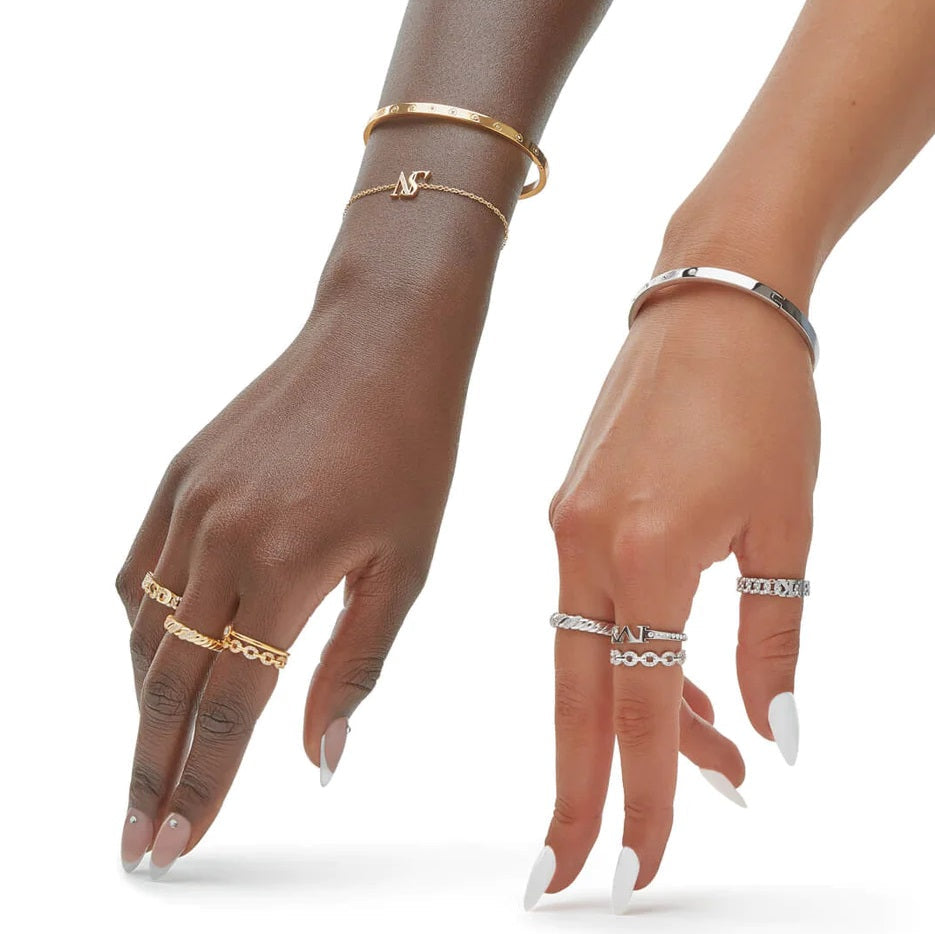Both silver and sterling silver offer great appearances, but they’re different when it comes to their composition and characteristics. Read on for a comparison of the two and how you can decide which you prefer.
Understanding silver
Pure silver, also known as fine silver, is a naturally occurring element. While it’s really easy to shape, pure silver is rarely used for jewellery due to its softness. The soft nature of pure silver makes it prone to scratches and deformation, making it less suitable everyday wear.

Enter sterling silver
To make silver last longer for jewellery, artisans introduced the alloy known as sterling silver. This alloying process adds strength to the silver without compromising its radiant appearance, resulting in a more resilient and wearable material that’s more commonly used for jewellery.
Comparing characteristics
Let’s take a closer look at the key points of silver and sterling silver so you can see the difference between the two more easily. We’re going to look at what they’re made of, how well they last, how long they stay looking good and the price.
Purity
Silver: 99.9% pure silver
Sterling silver: 92.5% pure silver
Durability
Silver: Soft and prone to scratches and deformations
Sterling silver: Harder and more durable, suitable for everyday wear
Tarnish resistance
Silver: Prone to tarnishing over time
Sterling silver: Tends to tarnish less due to the alloy composition
Price
Silver: Often less expensive
Sterling silver: Slightly more expensive, reflecting the added durability
Hallmarks
Silver: Hallmarked with "999" or "fine silver"
Sterling silver: Stamped with "925" or "sterling"

Both materials boast unique characteristics that make them better for different things. A lot of the time it’s down to personal preference, and your decision should align with your aesthetic preferences, budget and purpose of the jewellery. Add some Abbott Lyon sterling silver jewellery to your collection.

